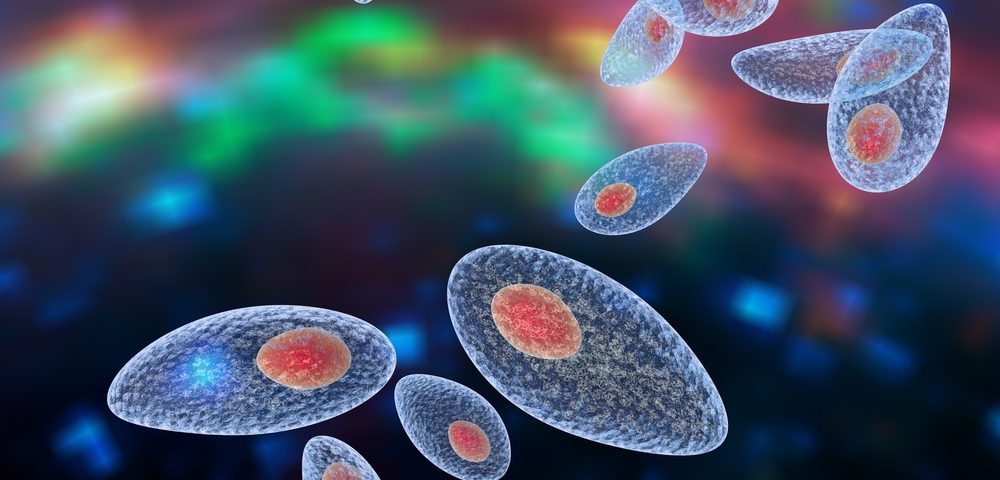Proteins secreted by the parasite Toxoplasma gondii were found to induce the immune system to turn against established ovarian cancer in mice.
The findings, by Geisel School of Medicine researchers, are reported in the study, “Secretion of Rhoptry and Dense Granule Effector Proteins by Nonreplicating Toxoplasma gondii Uracil Auxotrophs Controls the Development of Antitumor Immunity,” published in PLOS Genetics.
Toxoplasma gondii is a parasite that infects warm-blooded vertebrates when ingested through contaminated water or food. To survive the acute infection phase and establish a latent infection that is crucial for the transmission of the parasite into new hosts, T. gondii manipulates the host’s immune responses by secreting specific effector proteins.
Recently, mice with a form of highly aggressive ovarian cancer were given a vaccine with a safe, non-replicating strain of T. gondii that produced such a potent anti-tumor immunity that it effectively reversed what is known as the phenomenon of immune tolerance — essentially, an immune system that struggles to identify which cells it should be attacking. This is important because the immune suppression exerted by cancer cells often impairs the immune system from recognizing malignant cells, resulting in a less effective immune response.
Now, researchers deleted multiple genes for the known secreted effector proteins used in the T. gondii vaccine, and injected the altered parasites into mice with aggressive ovarian cancer to explore the specific mechanisms by which the parasite induces potent anti-tumor immunity.
Results revealed that rhoptry (ROP) and dense granule (GRA) effector proteins are secreted by the parasite both before and after host cell invasion, and are responsible for triggering and controlling this anti-tumor response through the activation of specific immune cells, including dendritic cells, cytotoxic T-cells, and helper T-cells. Mice that received the injection had improved cancer survival, the team reported.
The researchers believe that tracking and understanding which host pathways are manipulated by these effector proteins can reveal important mechanisms and identify new targets for more effective therapies against highly aggressive cancers.
Currently, clinical trials are exploring the role of the Listeria monocytogenes bacterium in inducing effective immune responses against pancreatic cancers, testing the hypothesis that infectious organisms may be an efficient therapeutic option for breaking tumor immune tolerance. In the future, T. gondii infection may be similarly used to fight aggressive cancers.

